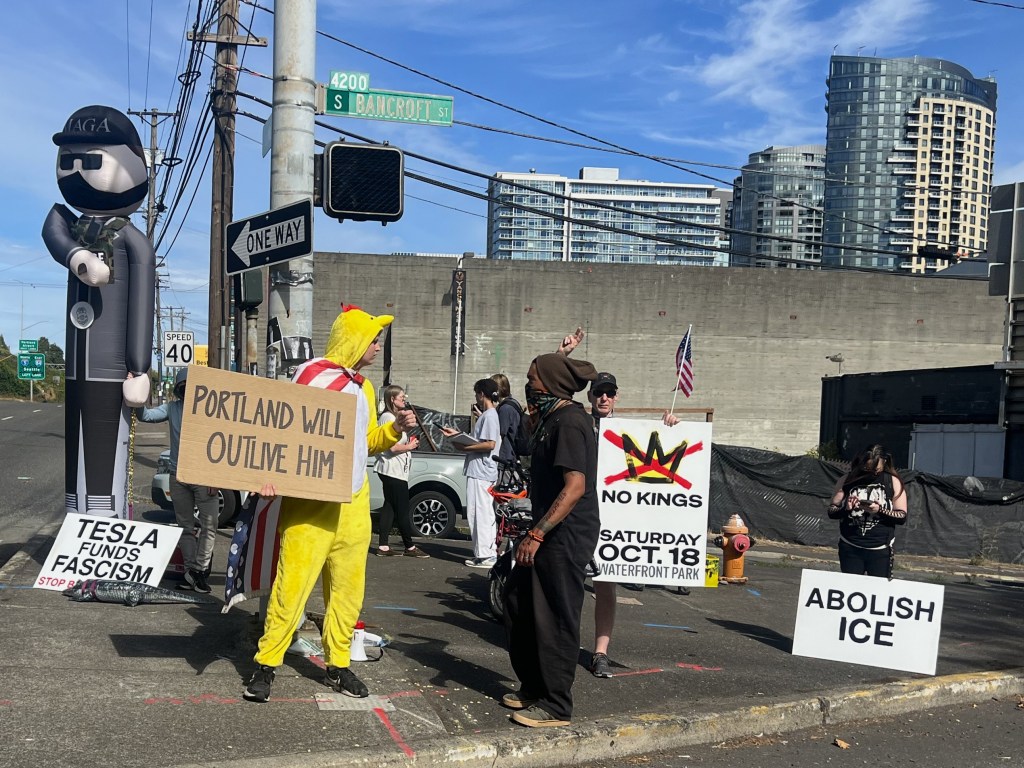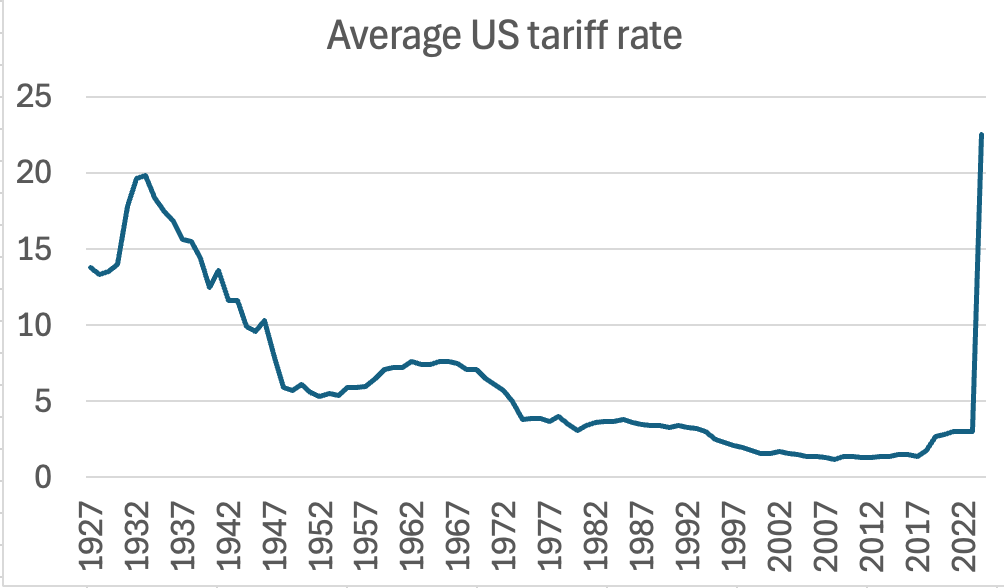What did Donald Trump do today?
He said American citizens were practice for the American military.
Trump addressed a gathering of virtually all of the nation's senior military leadership today. More than 400 generals and admirals, plus their senior enlisted aides, were summoned from commands all over the world at the behest of Trump's Secretary of Defense, Pete Hegseth. News of the meeting was leaked last week, and Trump had clearly heard about it at the same time as the rest of the world—or had been told and then forgot—because he initially thought Hegseth was meeting with foreign generals rather than demanding the entire military leadership of this country attend him.
Trump was a late add to the program, which was originally supposed to be about ex-National Guardsman Hegseth lecturing career military officers on the "warrior ethos." (Hegseth's own aides, speaking on background, told reporters yesterday that they believe he is in the middle of a mental health crisis.)
Hegseth, whose own mother joined in accusations that he had abused women, used the speech as an occasion to announce that he would expunge disciplinary records of such "earnest mistakes" committed by servicemembers. He accused "females" of weakening combat units with their presence, and called the idea that the military should reflect the actual American public an "insane fallacy." Hegseth, who was fired from two consecutive jobs with veterans' charities for losing control during alcoholic binges, also complained at length about "beardos"—servicemembers with medical authorizations to wear neatly trimmed beards because of folliculitis, mostly African-Americans.
Trump then replaced Hegseth on the stage, received in silence that clearly unsettled him. He made a "joke" about firing anyone who didn't agree with him, and then gave what amounted to a campaign speech. As has been especially common during his second term, Trump was meandering and unfocused and occasionally struggled to speak above a mumble.
One thing he said clearly, though, was that Americans living in cities who oppose his policies would be "training grounds" for American military forces. Trump called Americans who oppose him "the enemy from within" and a "horrible plague" and said that fighting them is "gonna be a big thing" for the troops commanded by the flag officers in the room.
Trump, like Hegseth, left the stage to no applause (which is military protocol) but immediately, dozens of officials began speaking to reporters about the event, calling it "embarrassing" and "garbage" and "deeply troubling." Some outright questioned Trump's fitness for office—an astonishing breach of the usual deference the professional American military shows to civilian command.
Why does this matter?
- Americans are not the enemy the American military fights.
- Americans are not the enemy the American military fights.
- Americans are not the enemy the American military fights.















